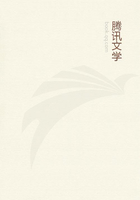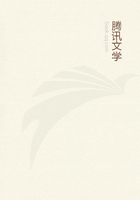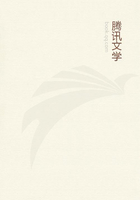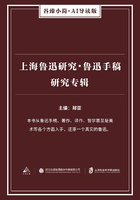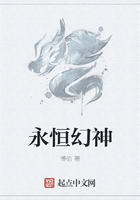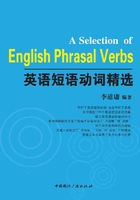"I thought how some people's towering intellects and splendid cultivated geniuses rise upon simple, beautiful foundations hidden out of sight." Thus, in his Letters to Mrs. Brookfield, Mr.
Thackeray wrote, after visiting the crypt of Canterbury Cathedral, with its "charming, harmonious, powerful combination of arches and shafts, beautiful whichever way you see them developed, like a fine music." The simile applies to his own character and genius, to his own and perhaps to that of most great authors, whose works are our pleasure and comfort in this troublesome world. There are critics who profess a desire to hear nothing, or as little as may be, of the lives of great artists, whether their instrument of art was the pen, or the brush, or the chisel, or the strings and reeds of music.
With those critics perhaps most of us agree, when we read books that gossip about Shelley, or Coleridge, or Byron. "Give us their poetry," we say, "and leave their characters alone: we do not want tattle about Claire and chatter about Harriet; we want to be happy with 'The Skylark' or 'The Cloud.'" Possibly this instinct is correct, where such a poet as Shelley is concerned, whose life, like his poetry, was as "the life of winds and tides," whose genius, unlike the skylark's, was more true to the point of heaven than the point of home. But reflection shows us that on the whole, as Mr.
Thackeray says, a man's genius must be builded on the foundations of his character. Where that genius deals with the mingled stuff of human life--sorrow, desire, love, hatred, kindness, meanness--then the foundation of character is especially important. People are sometimes glad that we know so little of Shakespeare the man; yet who can doubt that a true revelation of his character would be not less worthy, noble and charming than the general effect of his poems? In him, it is certain, we should always find an example of nobility, of generosity, of charity and kindness and self-forgetfulness. Indeed, we find these qualities, as a rule, in the biographies of the great sympathetic poets and men of genius of the pen--I do not say in the lives of rebels of genius, "meteoric poets"like Byron. The same basis, the same foundations of rectitude, of honour, of goodness, of melancholy, and of mirth, underlie the art of Moliere, of Scott, of Fielding, and as his correspondence shows, of Thackeray.
It seems probable that a complete biography of Thackeray will never be written. It was his wish to live in his works alone: that wish his descendants respect; and we must probably regard the Letters to Mr. and Mrs. Brookfield as the last private and authentic record of the man which will be given, at least to this generation. In these Letters all sympathetic readers will find the man they have long known from his writings--the man with a heart so tender that the world often drove him back into a bitterness of opposition, into an assumed hardness and defensive cynicism. There are readers so unluckily constituted that they can see nothing in Thackeray but this bitterness, this cruel sense of meanness and power of analysing shabby emotions, sneaking vanities, contemptible ambitions. All of us must often feel with regret that he allowed himself to be made too unhappy by the spectacle of failings so common in the world he knew best, that he dwelt on them too long and lashed them too complacently. One hopes never to read "Lovel the Widower" again, and one gladly skips some of the speeches of the Old Campaigner in "The Newcomes." They are terrible, but not more terrible than life.
Yet it is hard to understand how Mr. Ruskin, for example, can let such scenes and characters hide from his view the kindness, gentleness, and pity of Thackeray's nature. The Letters must open all eyes that are not wilfully closed, and should at last overcome every prejudice.
In the Letters we see a man literally hungering and thirsting after affection, after love--a man cut off by a cruel stroke of fate from his natural solace, from the centre of a home.
"God took from me a lady dear,"
he says, in the most touching medley of doggerel and poetry, made "instead of writing my Punch this morning." Losing "a lady dear,"he takes refuge as he may, he finds comfort as he can, in all the affections within his reach, in the society of an old college friend and of his wife, in the love of all children, beginning with his own; in a generous liking for all good work and for all good fellows.
Did any man of letters except Scott ever write of his rivals as Thackeray wrote of Dickens? Artists are a jealous race. "Potter hates potter, and poet hates poet," as Hesiod said so long ago.
This jealousy is not mere envy, it is really a strong sense of how things ought to be done, in any art, touched with a natural preference for a man's own way of doing them. Now, what could be more unlike than the "ways" of Dickens and Thackeray? The subjects chosen by these great authors are not more diverse than their styles. Thackeray writes like a scholar, not in the narrow sense, but rather as a student and a master of all the refinements and resources of language. Dickens copies the chaff of the street, or he roams into melodramatics, "drops into poetry"--blank verse at least--and touches all with peculiarities, we might say mannerisms, of his own. I have often thought, and even tried to act on the thought, that some amusing imaginary letters might be written, from characters of Dickens about characters of Thackeray, from characters of Thackeray about characters of Dickens. They might be supposed to meet each other in society, and describe each other. Can you not fancy Captain Costigan on Dick Swiveller, Blanche Amory on Agnes, Pen on David Copperfield, and that "tiger" Steerforth? What would the family solicitor of "The Newcomes" have to say of Mr.
Tulkinghorn? How would George Warrington appreciate Mr. Pickwick?

